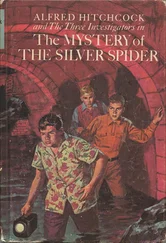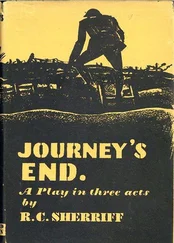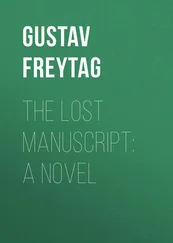Роберт Шеррифф - The Hopkins Manuscript
Здесь есть возможность читать онлайн «Роберт Шеррифф - The Hopkins Manuscript» весь текст электронной книги совершенно бесплатно (целиком полную версию без сокращений). В некоторых случаях можно слушать аудио, скачать через торрент в формате fb2 и присутствует краткое содержание. Год выпуска: 2018, ISBN: 2018, Издательство: Penguin Books, Жанр: sf_postapocalyptic, humor_satire, на английском языке. Описание произведения, (предисловие) а так же отзывы посетителей доступны на портале библиотеки ЛибКат.
- Название:The Hopkins Manuscript
- Автор:
- Издательство:Penguin Books
- Жанр:
- Год:2018
- ISBN:978-0-241-34908-3
- Рейтинг книги:4 / 5. Голосов: 1
-
Избранное:Добавить в избранное
- Отзывы:
-
Ваша оценка:
- 80
- 1
- 2
- 3
- 4
- 5
The Hopkins Manuscript: краткое содержание, описание и аннотация
Предлагаем к чтению аннотацию, описание, краткое содержание или предисловие (зависит от того, что написал сам автор книги «The Hopkins Manuscript»). Если вы не нашли необходимую информацию о книге — напишите в комментариях, мы постараемся отыскать её.
The Hopkins Manuscript — читать онлайн бесплатно полную книгу (весь текст) целиком
Ниже представлен текст книги, разбитый по страницам. Система сохранения места последней прочитанной страницы, позволяет с удобством читать онлайн бесплатно книгу «The Hopkins Manuscript», без необходимости каждый раз заново искать на чём Вы остановились. Поставьте закладку, и сможете в любой момент перейти на страницу, на которой закончили чтение.
Интервал:
Закладка:
‘It fits perfectly,’ I said. ‘You’ve grown upwards – not outwards.’
‘And they’ll give you Lieutenant’s badges when you join the Battalion,’ put in Pat. ‘You’ll look an awful swell!’
Pat and I tried valiantly to eat in company with Robin. To me it seemed utterly unreal – utterly impossible. The little room was darkening with the setting sun: pale beams of sunlight lingered upon the table and slowly fell away: the memories of all our happy evenings came whispering through the twilight: the strange, exalting evening when the three of us first gathered here on the night that followed the cataclysm – when Robin had knelt before the fire, coaxing it once more to life. Evenings when we had read aloud around that glowing fire – evenings when we had woven our dreams of all the splendid things that lay ahead.
Twilight still lingered around the lips of the valley as we went down to the station. The wind had fallen and it was very still and peaceful. There was just the faintest rustle in the brown leaves of the stripling trees that lined the lane.
We must have looked a strange little party upon that weed-grown, derelict station – Pat in her old Burberry coat and ‘flabby little hat’ – I in my old patched plus-fours and walking jacket – Robin, the young soldier going out to war. To an onlooker, deceived by our pitiful attempt at gaiety, we might have been a father with his daughter, seeing his tall son away to school. We rattled an empty old automatic machine with a rusty label marked ‘Milk Chocolate’: Robin banged against the window of the empty Booking Office and called out: ‘Three Excursion tickets to Blackpool, please!’ We scared a family of starlings from their nests in the ruined signal box with our gay laughter, and all the while my eyes kept turning towards the cleft in the valley where the sunset lingered – the cleft from which the train would come.
A dull haze of smoke tarnished the sky: a faint, weak whistle drifted through the twilight. ‘Here it is,’ I said.
Suddenly, with one accord, our laughter died. I saw Robin stoop to pick up his haversack. He slung it over his shoulder and turned to Pat. In that last moment I knew that I should never have come to the station that night. I should have remained at home, for I felt like an eavesdropper upon a moment sacred to that boy and girl. I knew their devotion to one another: I should have given them this last moment alone. The boy’s hand lay upon her shoulder: with lowered head she groped and held her brother’s leather belt.
‘Steady, old girl,’ I heard him whisper, ‘it won’t be for long… I’ll be back in no time, really.’
‘Take care of yourself, Robin… I’m… I’m so proud of you…’
I walked down the platform and drew out my torch to signal to the train, for they never stopped at this ruined little station unless you signalled to them.
The engine was just panting into the cutting – a precious minute still.
From the distance I saw the boy lower his head to kiss the girl beside him. Through the gathering night I saw her arms around him, and my memory raced through the years to far-off days when boys of my own generation had gone to another, far different war.
They had gone in the morning sunlight – gone in fresh uniforms and glittering badges – gone to a fluttering blaze of flags and the brave music of bands – to cheering crowds and waving handkerchiefs. They had gone to finely ordered regiments, well-clothed, well-fed: gone, above all, with a clear and definite purpose: with burning faith in the triumph of a cause.
And now Robin was going: going from the darkness of a derelict, wayside station into a deeper darkness from which reason and purpose had long since died, knowing nothing except that the land of his birth was in the toils – feeling nothing save an aching desire to do what he believed was right.
The engine driver had seen my waving torch. He signalled a grimy hand to me and the shabby train came slowly to a halt.
‘So long, Robin!’ I cried. ‘Write to us!’
‘Your sandwiches!’ cried Pat, thrusting the little packet through the window.
‘My heavens! – I nearly forgot them.’
For a long way we could see Robin’s waving handkerchief. A tiny, solitary white speck, blotted now and then by the smoke of the train.
We scarcely spoke as we walked home through the night. My mind was numbed to the thoughts of the boy who had left us. I was thinking all the way of a silly, irrelevant thing.
There had been scarcely anyone in the train, but as it had drawn away I had glimpsed through a window an elderly, red-faced man in a dinner jacket! A man with the heavy, wine-red face of a country gentleman, in a trilby hat and dinner jacket! Where on earth was he going, in a meandering train through a land quite barren of dinners demanding jackets?
It puzzled me and puzzled me. When Pat had gone to her room I sat for hours alone by my library fire, wondering about it. I have wondered since whether that old man in his dinner jacket was shown to me by a divine providence: a merciful drug to numb a pain beyond my bearing. The pain of the first evening without Robin sitting there by the library fire.
It was in the week after Christmas – on New Year’s Eve – when Pat said ‘goodbye’ to me.
An urgent call had been made for girls prepared to serve as nurses with the Expeditionary Force in Europe. Heavy fighting all that winter had made the need a desperate one, and Pat was going with her friend Joan Cranley.
On the afternoon of New Year’s Eve I helped to strap her luggage upon the back of Robin’s old bicycle, for the chain of her own had broken with age.
I walked with her to the crest of the downs. I waved to her until she was out of sight upon the road to Mulcaster, and returned to my home alone.
CHAPTER TWENTY-NINE
My story is over. Strange things have happened in the years since Pat and Robin left me: food for vivid narrative if the man experiencing them had been alive to them as well. To me they have left but a blurred and senseless jumble: neither food nor inspiration to my pen, for when Pat and Robin went away they took my very soul along with them, leaving a numbed, bewildered creature that I dimly recognise as ‘Edgar Hopkins’.
I remained alone in Beadle Valley for close upon two years. It is true that old Humphrey and Jim the boy were there, and a woman named Miss Tomlinson whom Pat had brought from Mulcaster to keep house for me, but never had I known such loneliness as came to me in those last days. All my life I had been a solitary man, but solitary through inherent shyness rather than desire. The coming of Pat and Robin had brought a breath of life and gaiety that I had never known before. Despite our hardships I can truly say that those were the happiest days of my life, and the passing of them brought a solitude deep and terrible.
For a little while I sustained myself with one grim resolve. Fiercely I told myself that Pat and Robin would soon return: fiercely and desperately I worked to keep our little estate clean and prosperous and worthy of their homecoming. I told myself that they might return quite unexpectedly – if only for a few days’ leave, and I devoted my whole life to that one abiding thought. At whatever time they returned, whether it be at dawn or midnight or in the full sunlight of noon, they would not catch me unawares: they would find their home as they had left it and know that I had kept, through all my loneliness, a stout heart.
Twice I had letters from Pat, and once from Robin. Pat was working in a big derelict factory, converted into a hospital, at Antwerp: she, too, was lonely, although I only read that through the lines. Her friend Joan Cranley had been sent elsewhere and most of Pat’s companions were French and German girls. ‘We are terribly busy,’ she wrote, ‘and horribly short of the things we need. Nobody seems to know who is fighting whom, but all the armies are moving eastward now – away from the moon – and we hear the strangest rumours…’
Читать дальшеИнтервал:
Закладка:
Похожие книги на «The Hopkins Manuscript»
Представляем Вашему вниманию похожие книги на «The Hopkins Manuscript» списком для выбора. Мы отобрали схожую по названию и смыслу литературу в надежде предоставить читателям больше вариантов отыскать новые, интересные, ещё непрочитанные произведения.
Обсуждение, отзывы о книге «The Hopkins Manuscript» и просто собственные мнения читателей. Оставьте ваши комментарии, напишите, что Вы думаете о произведении, его смысле или главных героях. Укажите что конкретно понравилось, а что нет, и почему Вы так считаете.












